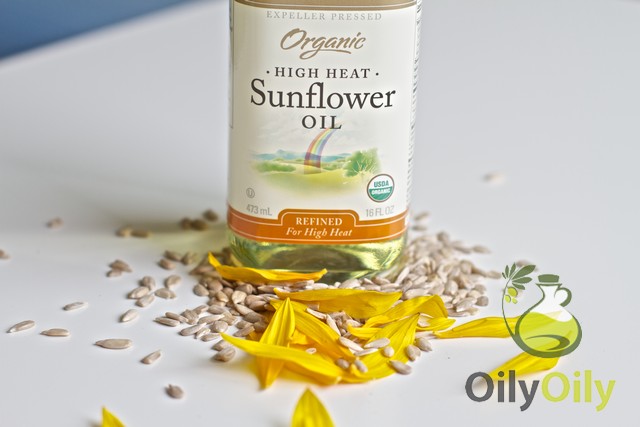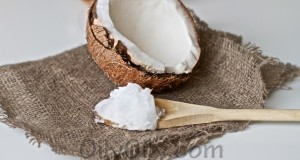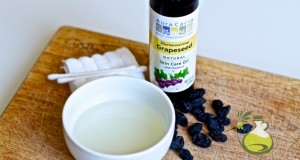
The source of sunflower oil is sunflower seeds, which are full of essential fatty acids and Vitamin E. All of the compounds of sunflower oil are in balance. They have a good impact on human health if consumed in moderation.
Sunflower oil nutrition facts
Sunflower oil is 100% fat. Therefore, there are many calories in sunflower oil and one should be aware of the amount of its consumption in order not to gain weight. One tablespoon contains 119-124 calories (6-7%DV); the total fat of the serving is 14%DV.
Except from the original sunflower oil, two more hybrid oils were developed that did not need hydrogenation to stay stable while frying, as the National Sunflower Association states. Hydrogenation causes the appearance of tans fats that can have a damaging effect on the cardiovascular system.
SEE ALSO: Top 3 Uses for Sunflower Oil
The market offers three types of sunflower oil depending on their oleic levels:
- high linoleic;
- high oleic (no less than 82% oleic acid);
- mid oleic or NuSun (no less than 69% oleic acid).
Obviously, the nutrition facts of these kinds of sunflower oil have significant differences concerning their fatty acid composition. Here is a comparative table made according to the data of Wikipedia, SelfNutritionData, the National Sunflower Association. The fatty acid compositions of sunflower oils are given for a serving size of 1 tablespoon.
| Saturated Fat | Monounsaturated Fat
| Polyunsaturated Fat
| Omega-6 fatty acids | Omega-3 fatty acids |
High Linoleic | 1.4g (6%DV)
| 6.1 g
| 5.4 g
| 5374 mg
| 27.0 mg
|
High Oleic | 1.4 g (6%DV)
| 11.7 g
| 0.5 g
| 505 mg
| 26.9 mg
|
NuSun | less than 1 g | 5.7 – 6.5 g | 2.6 – 2.9 g |
|
|
According to the American Heart Association, there is evidence that essential fatty acids reduce the risk of a heart disease. Since our body cannot synthesize fatty acids, we have to find a good source of them and consume it daily.
The table shows that high oleic and NuSun sunflower oils are the healthiest choices. The fatty acid composition of high oleic sunflower oil is very similar to the composition of olive oil. They suite very well for commercial use and frying as a substitute for trans fats. Besides, they contain less amount of Omega-6 fatty acid, which the University of Maryland Medical Center advises to consume in moderation.
IMPORTANT! High Oleic Sunflower Oil Adverse Effects
Sunflower oil nutrition value is high due to its richness in Vitamin E as well. One tablespoon of the oil contains 5.5-5.8 mg (28%-29%DV) of this vitamin, no matter what type of sunflower oil is considered. There is also a small amount of Vitamin K in sunflower oil – 0.7-0.8 mcg (1%DV) per one tablespoon. Phytosterols comprise 13.5 mg per one tablespoon of the oil nutrients. However, the oil does not contain any appreciable minerals.
Sunflower oil is liquid at room temperature. The refined oil is clear, with a light yellow to amber color and a mild odor. Its smoke point is 232°C (450°F) if refined and 107°C (225 °F) if unrefined. The density of sunflower oil is 918.8 kg/m3
In a total, sunflower oil is a good all-purpose vegetable oil for cooking.
SEE ALSO: 5 Sunflower Oil Substitutes
 Oilypedia.com – Benefits And Uses Of Supplemental and Essential Oils
Oilypedia.com – Benefits And Uses Of Supplemental and Essential Oils 


